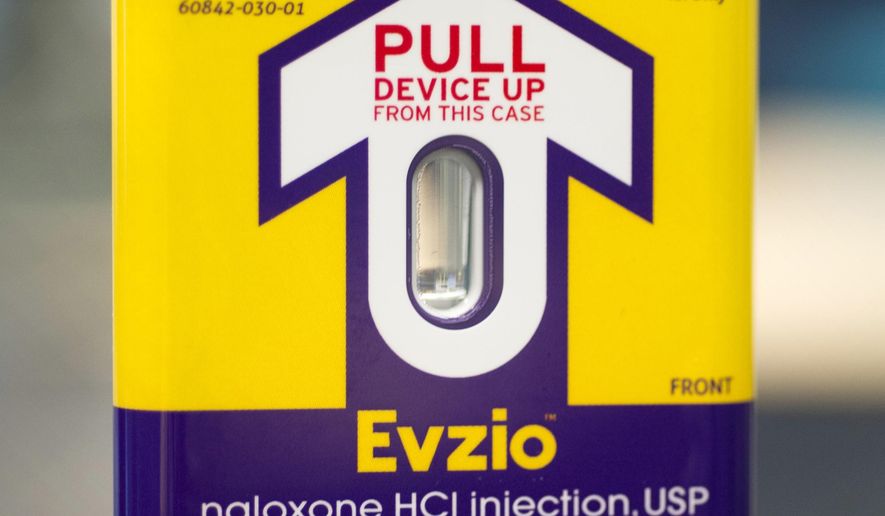A drugmaker capitalized on the opioid epidemic by hiking the price of its overdose-reversing drug by 600 percent during the height of the crisis, Senate investigators charged Sunday.
The Permanent Subcommittee on Investigations faulted Kaleo, the Richmond, Virginia-based maker of the naloxone drug EVZIO, for using its sales force to make sure doctors signed paperwork indicating the product was medically necessary.
Sen. Rob Portman, Ohio Republican, and Sen. Tom Carper, Delaware Democrat, said that compelled Medicare and Medicaid programs to cover it. Costs skyrocketed, and taxpayers spent a whopping $142 million on the drug over the last four years.
The senators said experts had recommended a lower price for EVZIO.
Also, company documents showed that outside consultants structured the business model to “capitalize on the opportunity” of “opioid overdose at epidemic levels,” the report said.
“Kaléo’s more than 600 percent price increase of EVZIO not only exploits a country in the middle of an opioid crisis, but also American taxpayers who fund government-run health care programs designed to be a safety net for our country’s elderly and most vulnerable,” the report said.
EVZIO, an auto-injector that talks a user through how to administer the drug, is one of two branded versions of naloxone, a highly effective drug that can revive people suffering from an opioid overdose. The other is Adapt’s “Narcan” nasal spray.
The initial wholesale acquisition cost of $575 per unit — set in 2014 — ballooned to $3,750 by 2016 and then to $4,100 with the launch of EVZIO 2.0 mg, a higher dose ushered in to reflect the new potency of opioid street drugs, according to the report.
Senators said the price hikes allowed the company to give out EVZIO to uninsured customers at no cost.
“In short, sales to patients with insurance coverage for EVZIO were intended to cover kaléo’s cost to send the drug to patients whose insurance did not cover kaléo,” the report said. “Thus, the need to raise the price.”
For its part, Kaleo said it was “disappointed” by how the narrative’s been cast — the probe was unveiled in primetime on CBS’s 60 Minutes — and that there is “much more to this very complex story.”
Foremost, it said 5,500 lives have been saved by its product, based on voluntary reports to the company.
“Second, we have never turned an annual profit on the sale of EVZIO.2 Patients, not profits, have driven our actions,” the company said.
“We believe patients and physicians should have meaningful choices,” it continued. “There is no doubt, the complexity of our healthcare system has had unintended negative implications for everyone involved, but most importantly, for patients. To this end, we explored viable paths within the current healthcare system to make EVZIO available to patients in a responsible, meaningful and affordable way.”
The investigation is the select subcommittee’s second major foray into the opioid crisis, which claimed more than 70,000 lives in 2017, according to federal data.
Earlier, investigators found that it was far too easy to purchase fentanyl — a powerful synthetic opioid — from clandestine labs overseas. All it took was a Google search, a credit card and mailbox in the U.S.
Congress is requiring the U.S. Postal Service to acquire advanced electronic data on packages from foreign posts, so customs agents can root out suspicious parcels.
All packages from China, and 70 percent of the overall flow, must have the information available by the end of this year, and 100 percent global compliance is due by 2021.
The provision was tucked into a sweeping opioids bill that President Trump signed into law earlier this fall, making it a bright spot of bipartisanship before the bitter mid-term elections.
The new report is likely to revive complaints from Democrats who say the government isn’t doing enough to knock down the price of life-saving naloxone.
House Democrats who will retake the majority in January say using federal authority under Medicare to negotiate drug prices is a top item on their agenda.
• Tom Howell Jr. can be reached at thowell@washingtontimes.com.




Please read our comment policy before commenting.